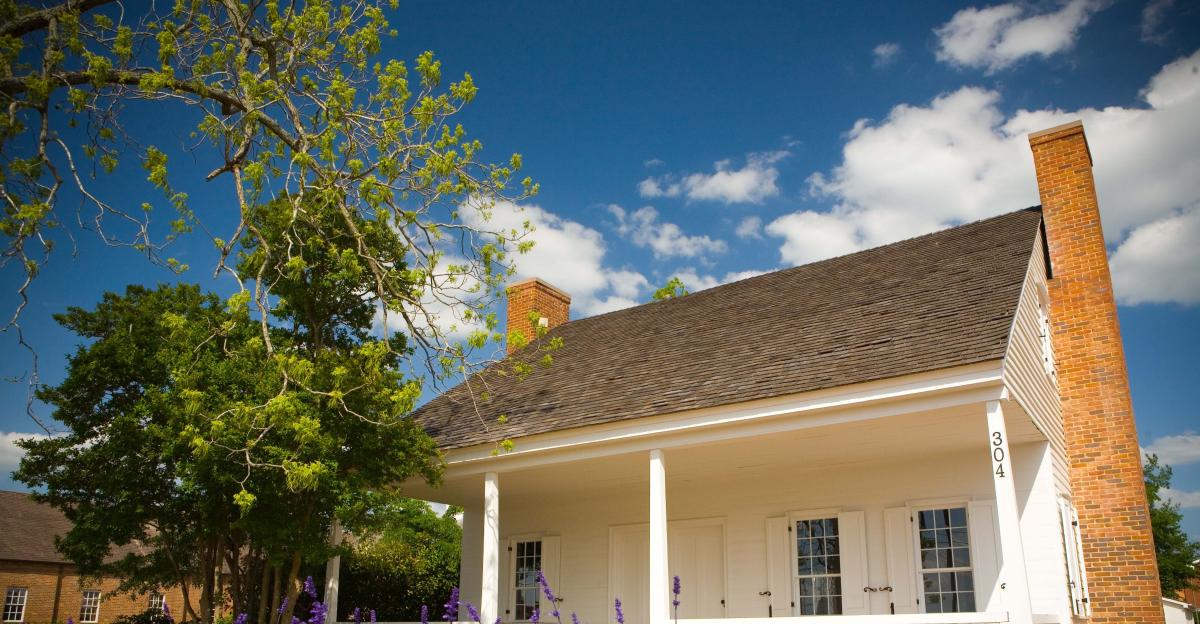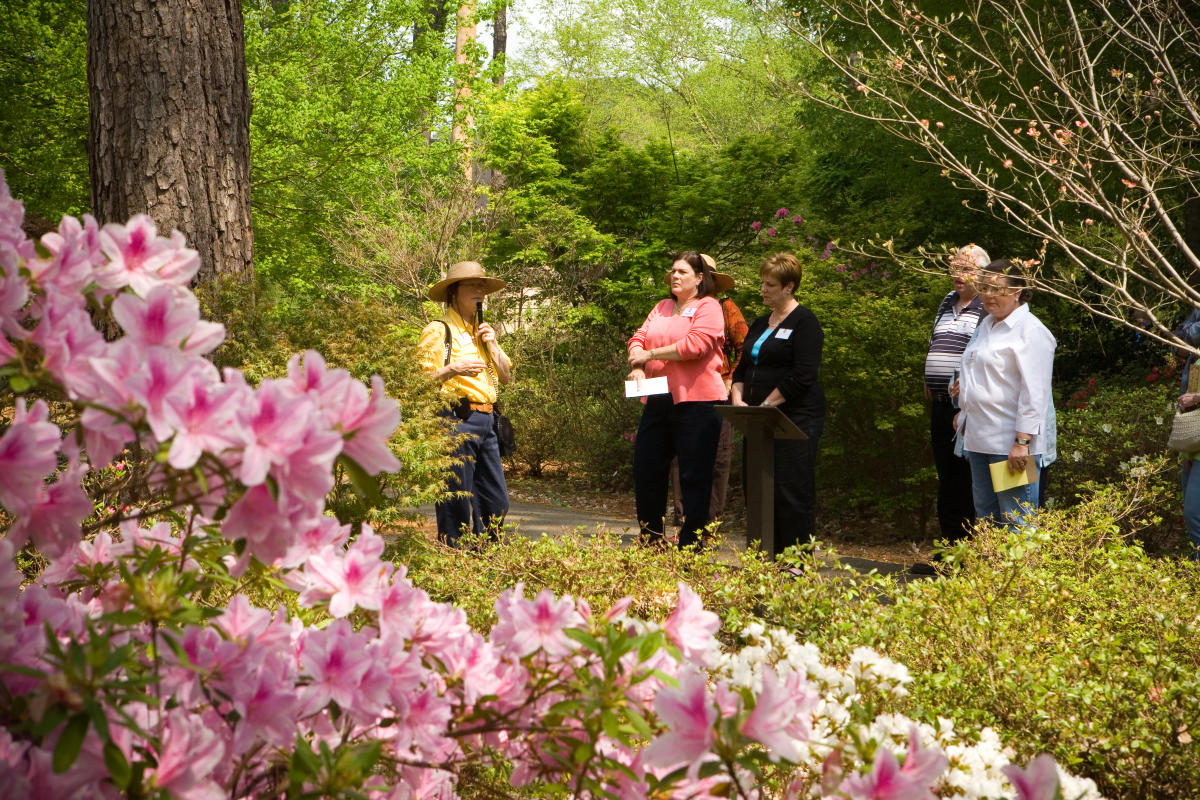Gardens
Crepe Myrtle Garden
Access from University Dr.
On the campus of SFA, between Homer Bryce Stadium and the Commuter Parking Lot.

(936) 560-4443
304 North St.
The historically accurate garden surrounding this circa 1835 wood-frame house help portray what life was like in Texas during the 1840s. Plants include fruit trees, pecan trees, sugarcane, herbs, vegetables and Louis Phillipe antique roses.
EUGENIA STERNE PARK
Main St and Lanana St
Chinese fringe trees, deciduous hollies, deciduous azaleas, redbuds, dogwoods and camellias fill this garden.
JIM AND BETH KINGHAM CHILDREN’S GARDEN
The entrance of this garden is planted with bright annual flowers surrounding a timber-frame pavilion. Visitors enjoy the water feature, educational area and planting field.
LIBERTY MEMORIAL GARDEN
Banita Creek Park North Plantings along the exercise trail in Banita Creek Park North commemorate lives lost during the tragic events of 9/11.
MARGIL PARK
805 E. Main St.
Pick up the Lanana Creek Trail at Liberty Hall
(936) 564-6631
6020 North St.
This reconstructed historic village of original 19th century structures is landscaped with traditional plants.
Main St. and University Dr.
This 7.3 acre tract on the site of the old Aqua Vitae Park includes a butterfly garden, a Good Bug Garden, a bulb garden, a vegetable garden, a Memory Walk surrounded by roses, azalea and camellia beds and several varieties of baldcypress, maple, oak, sycamore and crapemyrtles. Its structures include a rainwater collection system, multiple benches and a gazebo.
200 N. Lanana St.
Oak Grove Cemetery is one of the most famous in Texas. It is the final resting place for a number of legendary Texans, including four signers of the Texas Declaration of Independence.
(936) 569-7292
515 N. Mound St.
A formal 19th century garden blooming with period-appropriate Old Garden Roses. It includes the the first China Rose in America, “Old Blush” or “Parson’s Pink,” introduced in 1752
(936) 468-1832
2900 Raguet St.
Features of this 42-acre garden on the north end of the SFA
campus include Tucker Woods Trail, with more than two miles of universally accessible pathways through a native bottomland hardwood forest; the Lady Bird Johnson Wildflower Demonstration Garden, which grows more than 100 species native to the East Texas Pineywoods; and the Healing Memorial Garden.
PLAZA PRINCIPAL
200 E. Main St.
The beautifully landscaped town square is shaded by crapemyrtles, camellias and includes show stopping azaleas. You will find a variety of other seasonally planted color throughout the year.
POCKET PARK
Pecan St.

(936) 468-1832
University Dr. (between Starr Ave. and College St.)
The largest azalea garden in Texas, this eight-acre garden in a loblolly pine forest contains 46 planting beds, 1.25 miles of universally accessible trails and 50 benches. Explore more than 550 varieties of rhododendron, 100 varieties of camellia, more than 200 varieties of hydrangea, Japanese maples and other unique collections. Ruby M. Mize Azalea Garden is the highlight of the Nacogdoches Azalea Trail; it hosts special events and guided tours each spring. For details, visit www.NacogdochesAzaleas.com. Nacogdoches was named the first "Azalea City of America" by the Azalea Society of America in 2004 and was recertified in 2012.
SPANISH RELIGIOUS PLAZA
(936) 468-1832
Wilson Dr.
Dedicated to testing and promoting a diverse collection of plants for the landscape and nursery industry in the South, This 18-acre green space boasts more than 7,500 different plants and features more than 20 theme gardens.
(936) 468-1832
University Dr. (between Starr Ave. and College St.)
Bike, run, hike or walk through this 68-acre forest with miles of shaded trails.
(936) 560-5426
211 S. Lanana St.
Built by Adolphus Sterne, this structure is believed to be the oldest frame house of major historical significance still standing on its original site in Nacogdoches. Crapemyrtles, Chinese parasols and dogwoods are just a few of the tree varieties growing on the property. The surrounding gardens include azaleas, hydrangeas, roses and camellias and a living espalier fence.
(936) 468-1832
Starr Ave. (between North St. and University Dr.)
SFA’s lab gardens include small farm-production and commercial-sized plots, as well as several raised beds. Used for research projects on sustainable vegetable production practices, much of the project’s fresh produce supplies local food banks.